LOW CARBON NUCLEAR POWER
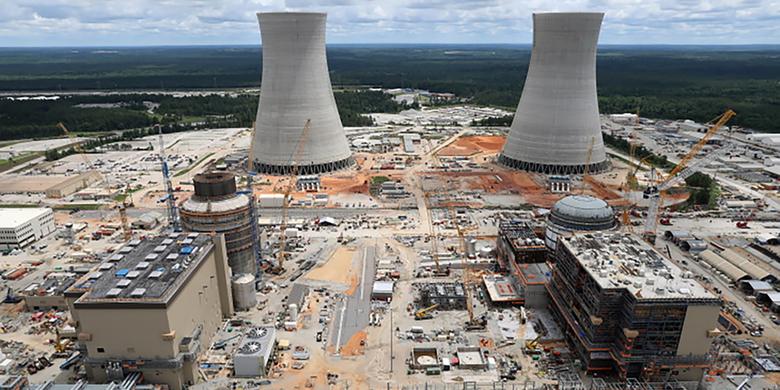
РЕЙТЕР -
-----
Раньше:

2018, March, 14, 11:45:00
REUTERS - U.S. West Texas Intermediate (WTI) crude futures CLc1 were at $60.77 a barrel at 0753 GMT, up 6 cents, or 0.1 percent, from their previous settlement. Brent crude futures LCOc1 were at $64.62 per barrel, down just 2 cents from their last close.
|

2018, March, 7, 15:00:00
РЕЙТЕР - К 9.17 МСК фьючерсы на североморскую смесь Brent опустились на 0,85 процента до $65,23 за баррель. Фьючерсные контракты на американскую лёгкую нефть WTI к этому времени торговались у отметки $62,07 за баррель, что на 0,85 процента ниже предыдущего закрытия.
|

2018, March, 7, 14:00:00
EIA - North Sea Brent crude oil spot prices averaged $65 per barrel (b) in February, a decrease of $4/b from the January level and the first month-over-month average decrease since June 2017. EIA forecasts Brent spot prices will average about $62/b in both 2018 and 2019 compared with an average of $54/b in 2017.
|

2018, March, 5, 11:35:00
РЕЙТЕР - К 9.28 МСК фьючерсы на североморскую смесь Brent поднялись на 0,33 процента до $64,58 за баррель. Фьючерсные контракты на американскую лёгкую нефть WTI к этому времени торговались у отметки $61,44 за баррель, что на 0,31 процента выше предыдущего закрытия.
|

2018, March, 4, 11:30:00
МИНФИН РОССИИ - Средняя цена нефти марки Urals по итогам января – февраля 2018 года составила $ 65,99 за баррель.
|

2018, February, 27, 14:15:00
РЕЙТЕР - К 9.18 МСК фьючерсы на североморскую смесь Brent опустились на 0,15 процента до $67,40 за баррель. Фьючерсные контракты на американскую лёгкую нефть WTI к этому времени торговались у отметки $63,80 за баррель, что на 0,17 процента ниже предыдущего закрытия.
|

2018, February, 27, 14:05:00
МИНФИН РОССИИ - Средняя цена на нефть Urals за период мониторинга с 15 января по 14 февраля 2018 года составила $66,26457 за баррель, или $483,7 за тонну.
|
LOW CARBON NUCLEAR POWER

WNN - 22 April 2021 - The Canadian Nuclear Association, Europe's Foratom, the Japan Atomic Industrial Forum, the USA's Nuclear Energy Institute, the UK's Nuclear Industry Association and World Nuclear Association have issued a joint statement ahead of the Leaders Summit on Climate that starts today. At the invitation of US President Joe Biden, world leaders will convene for the two-day event to galvanise efforts to reduce greenhouse gas emissions.
"We have less than 30 years to cut carbon emissions from every sector of our global economy to zero. To meet the urgency and the magnitude of this challenge we must take a realistic, science-based approach that addresses all sectors," the industry groups said. "The world will need to generate many times more clean energy than we do today. To achieve this will require that we use every low-carbon technology at our disposal. Nuclear power must be one of those technologies."
The benefits of nuclear technologies are "unmatched", they said, and include:
- A proven track record: nuclear power plants have operated for more than 60 years; they are the largest single source of low-carbon electricity in developed countries and have a long-proven track record in offering an affordable low-carbon alternative to fossil fuel generation.
- 24/7 reliability: nuclear plants provide a dependable, always-on output. But they can also operate flexibly, supporting the deployment of intermittent renewable generation and ensuring a robust and resilient electricity system.
- Cost-effective: Nuclear energy is a cost-effective climate change mitigator. Extending the operation of our current reactors is the lowest-cost form of additional low-carbon generation. New reactors are competitive, particularly when total system costs and the value of avoided emissions are taken into account.
- Energy services beyond electricity: nuclear reactors can be used to provide process heat for industry, to desalinise water, produce green hydrogen, and to create synthetic low-carbon fuels as well as to generate power.
- Jobs and socio-economic benefits: nuclear energy deployment efficiently promotes national and local economic growth. It provides long-term high-skilled jobs and has significant multiplier effects in many sectors of the economy. For developing countries, where the bulk of world energy demand growth will occur in the decades to come, nuclear can be a huge development contributor, as well as limiting their reliance on fossil fuels.
- Scalable: New designs mean that any country, large or small, can deploy nuclear power, irrespective of their natural resources.
"Today, nuclear innovation is unlocking further possibilities for sustainable development. Nuclear energy is a vital part of a successful transition to a clean energy future. We urge global leaders to put in place technology-neutral policies that will make possible for countries to deploy all the low-carbon options available as they set their action plans to reach net-zero. Do not deprive current and future generations one of the most effective low-carbon generation sources currently available."
-----
Earlier:
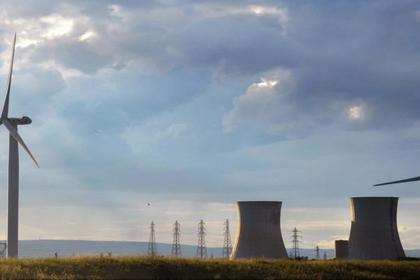
2021, April, 1, 12:20:00
NUCLEAR DECARBONISATION
Grossi said nuclear energy is a longstanding source of low-carbon electricity, has innovative solutions for further decarbonisation, and it enables renewable energy to be more effective.
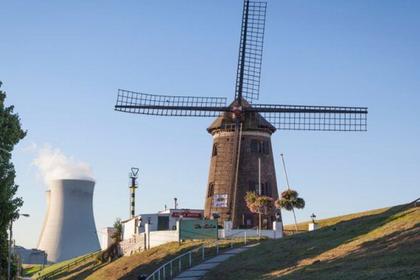
2021, April, 1, 12:15:00
NUCLEAR WITHOUT CARBON
Nuclear power is relatively expensive and some environmental groups worry about accidents and the storing of spent fuel, which is dangerous. Still, it’s the only source of carbon-free power that can run around the clock.
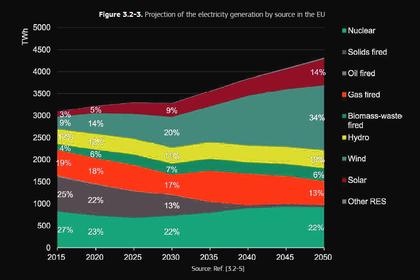
2021, March, 30, 12:25:00
NUCLEAR FOR CLIMATE
"The analyses did not reveal any science-based evidence that nuclear energy does more harm to human health or to the environment than other electricity production technologies already included in the Taxonomy as activities supporting climate change mitigation,"
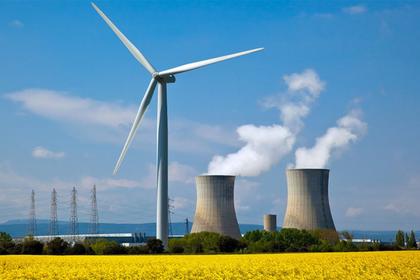
2021, March, 17, 14:25:00
NUCLEAR RELIABILITY
Nuclear power and renewables can, if planned properly, be exemplary partners as we strive towards building a clean energy world following the pandemic, while ensuring that we do so without leaving a large percentage of world's population behind.
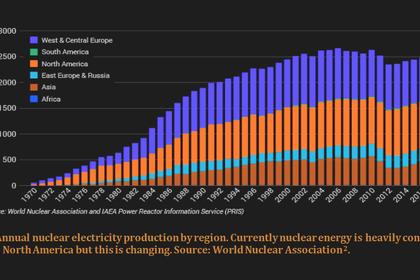
2021, March, 15, 10:35:00
NUCLEAR ENERGY IS IMPORTANT COMPONENT
Nuclear energy is an "indispensable tool" for achieving the sustainable development goals (SDGs). It has a crucial role in providing affordable energy and climate change mitigation, as well as eliminating poverty, achieving zero hunger, providing clean water, economic growth, and industry innovation.
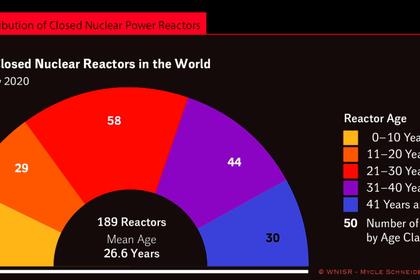
2021, March, 10, 12:10:00
NUCLEAR POWER COMPETITIVENESS
Fukushima has certainly left its mark on the nuclear industry. When the Tohoku earthquake and tsunami occurred on March 11, 2011, there were 54 nuclear reactors in Japan.
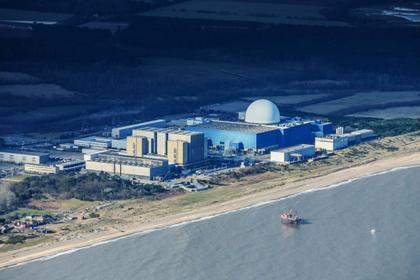
2021, February, 19, 13:05:00
NUCLEAR POWER IS ESSENTIAL
The UK, as host of the next round of UN climate talks, must take the opportunity to show how nuclear energy is essential to decarbonisation,
All Publications »
Tags:
CARBON,
NUCLEAR,
CLIMATE





















